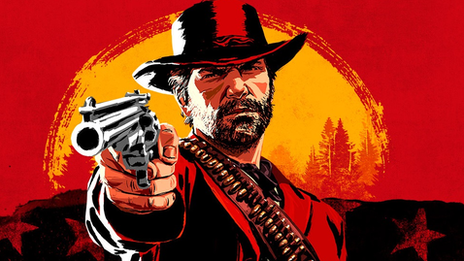How the UK became a major player in the gaming world
- Published
- comments
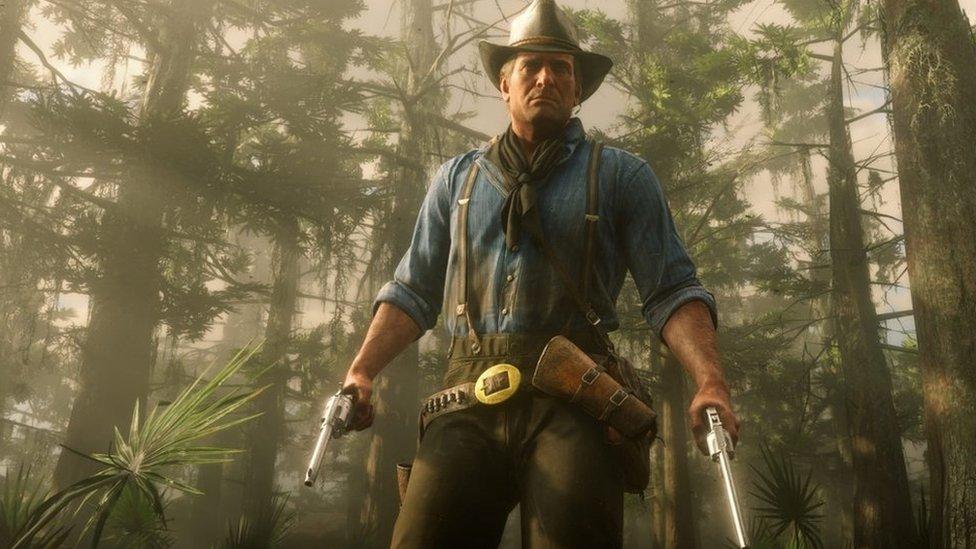
A gaming studio in the UK was heavily involved in the making Red Dead Redemption
The UK's gaming industry has just been estimated to be worth £3.86bn - more than video and music combined.
That makes it the fifth largest video game market in the world (or a shed load of "rosebud" cheats on The Sims).
The Entertainment Retailers Association (ERA), who released those figures, suggests only China, USA, Japan and Germany are making more money from gaming.
So what's helping one of the UK's youngest sectors thrive?
'We've always been able to punch above our weight'
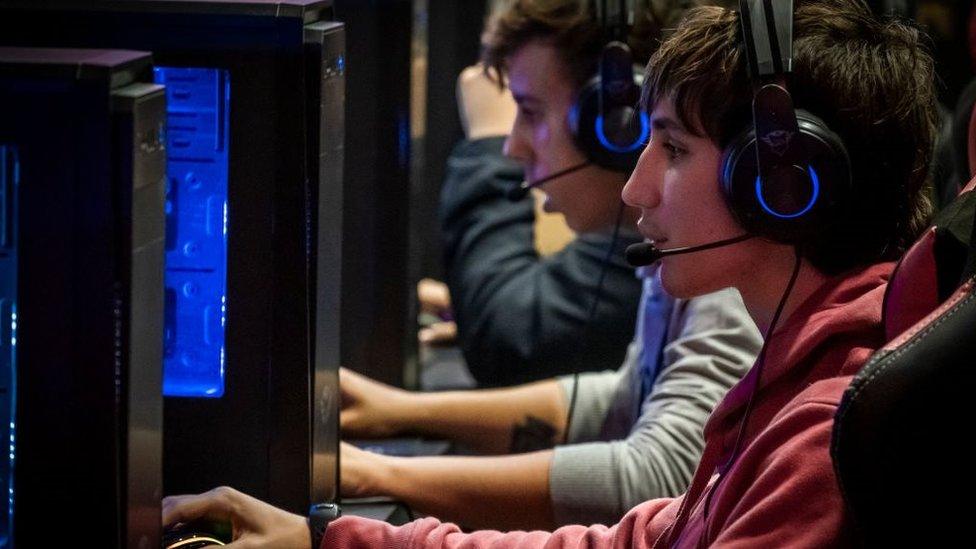
It's estimated 32.4 million people in the UK play games
Graeme Struthers, co-founder of UK-based independent games publisher Devolver Digital, puts an element of the UK's success down to the industry forming "very quickly and very early on".
"If you look at the world of music and film, we've always been able to punch way above our weight globally," he tells Radio 1 Newsbeat.
"I'd consider video games to be in the same category. It's an art form and there's a general attraction to that in this country so we've always been very successful.
"The gaming industry as it now exists formed around the same time back in the late 70s early 80s - there were a small number of influential people in programming.
"That became the basis of game development and from that point on, the UK's always had prominent games' developers in every format."
WATCH: Inside Rockstar: Red Dead Redemption 2
Skip forward a few decades to 2018, Rockstar Games' latest release Red Dead Redemption 2 has sold more then one million copies in the UK.
The game was made all over the world but the lead studio was in Edinburgh - in the hub of Rockstar North's studio.
The company is also behind the Grand Theft Auto and Max Payne franchises, but it isn't the only big player (pun fully intended) from the UK.
Among the 2,260 other gaming companies based here are Football Manager creator Sports Interactive, Batman developer Rocksteady, Criterion Games - which worked on Star Wars Battlefront II - and Playground Games which co-created racing game franchise Forza.
Why the makers of Forza Horizons want you to be able to race through the Cotswolds
Graeme suggests these companies have been "breeding grounds" for UK talent.
"Those types of studios have employed 1,000s of people over their lifetime.
"A number of people will go off and try and set up their own studios - big developers will now look at UK talent in a very positive light."
'We've added a different dimension to gaming'
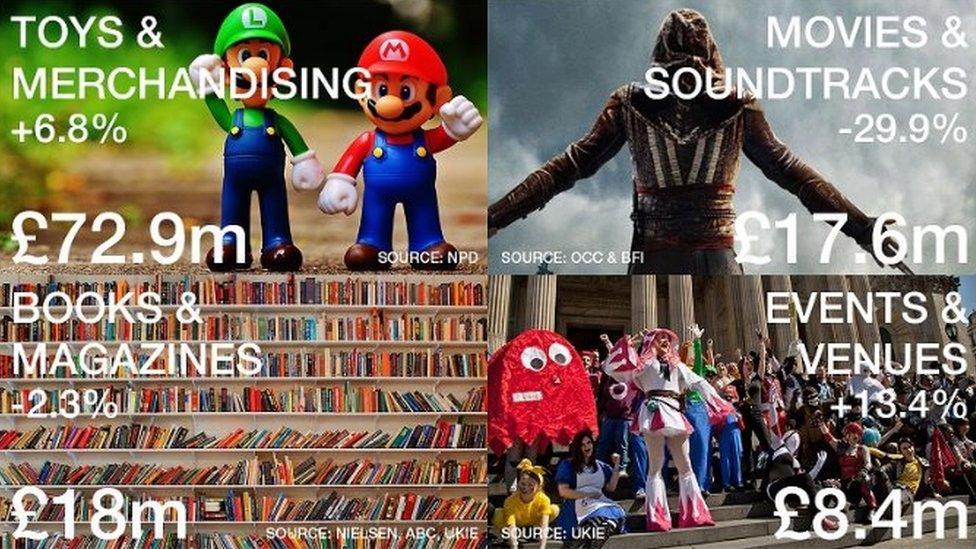
Gaming culture was worth an estimated £117m in 2017 due to things like merchandise and events
As well as the wealth of people behind the scenes, UK gaming culture has capitalised on an increased appetite of gamers.
Michael French runs the London Games Festival, which has seen crowds double from 30,000 to 60,000 since it started in 2016.
"It's easier to access games now - whether that's through your tablet or through your TV," he tells Newsbeat.
"At our event, and others like it, we represent the UK's talent base and give them ways to meet and come up with ideas and share them.
"That's where you get a diverse range of games coming from, which helps give games a bigger appeal than they've ever had.
"We also let people interact with games they love and hear from the creators and find out what's coming up to keep people excited."
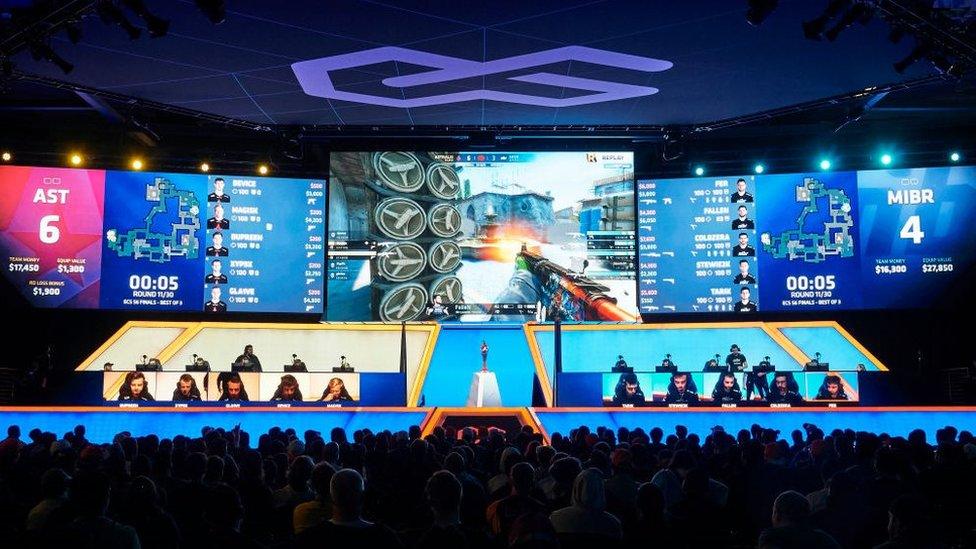
Esports are predicted to earn the UK £8m in ticket sales by 2021
Other events like EGX and Resonate Total Gaming help attract thousands of gaming fans to the UK.
Michael says the UK's rise has also been helped by creators and players being acknowledged on a bigger scale.
"The gaming Baftas add a layer of credibility to the art of making a game whether you're a small or big developer - and the rise of esports is a whole other world."
Competitions like ESL One Birmingham, which had a prize pool of $1m (£791,900) last year, and the 2018 Fifa eWorld Cup in London have now become commonplace in the UK.

Saudi Arabia's Mosaad "Msdossary" Aldossary earned $250,000 (£190,000) after winning the 2018 Fifa eWorld Cup
"We've added a different dimension to being a viewer or participant," says Michael.
"Even though there's a high level of skill needed to be in a team, the barriers of entry have been lowered.
"There's a lot of different ways to interact with games - more than just playing them at home on your own."
Planning for the future
The rise of the UK game industry hasn't come out of the blue.
Without time and money going back into the industry, it's current success and growth in the future wouldn't happen.
For example, in 2016 alone, the UK games industry put £1.25bn back into the development of new releases and companies working in the industry.
With more than 20,000 full time jobs in gaming, there have been calls for more education to help find a new generation of potential developers.
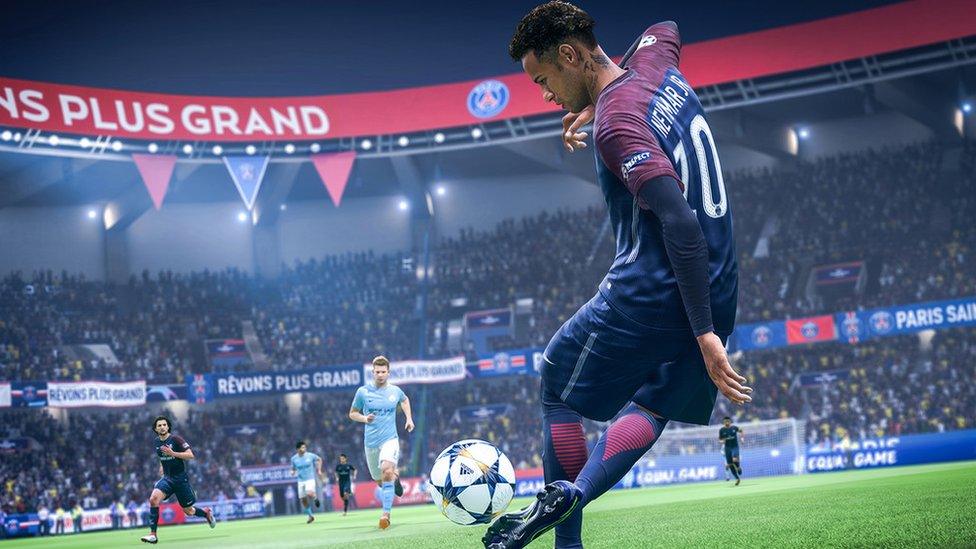
Fifa sold more than a million copies in the UK in 2018
In 2014 those calls were answered as schools in England increased classes on computing including lessons on coding.
In April of that year a Video Games Tax Relief (VGTR) was also made available for British games companies.
If a company qualifies, it can claim back 20% of production costs during development.
It's estimated that 68% of games supported by the VGTR would not be made in the UK, or at all, without it.
The UK's gaming dominance doesn't look like it's going away any time soon.
It was recently announced that the popularity of football games is being utilised by the Premier League, which is launching an esports league FIFA players across the UK.
The competition, which starts later this year, will be broadcast live on Sky Sports and the Premier League's social media channels - helping to bring gaming to a whole new audience.
Follow Newsbeat on Instagram, external, Facebook, external and Twitter, external.
Listen to Newsbeat live at 12:45 and 17:45 every weekday on BBC Radio 1 and 1Xtra - if you miss us you can listen back here.
- Published28 September 2018

- Published22 October 2018
